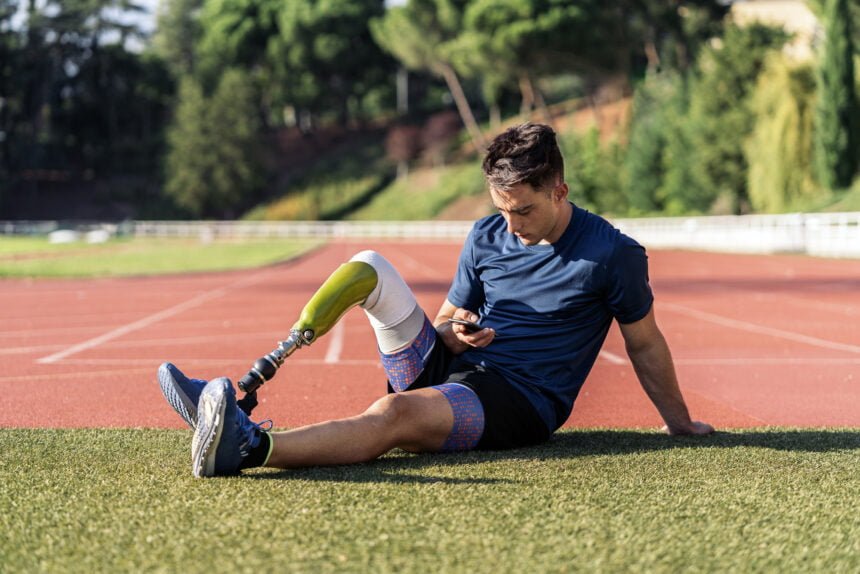When an individual suffers from an amputation injury, it can be a life-changing experience. However, all hope is not lost! There are countless healthcare solutions available that can help individuals adjust to their new normal and take back control of their lives.
From prosthetic limbs to physical therapy and psychological counseling, healthcare professionals have developed innovative strategies for helping those with amputations. With the latest advances in technology, amputees can regain independence through state-of-the-art prosthetics customized to meet their needs. Additionally, physical therapy and exercise programs focus on developing strength and mobility while providing emotional support so that individuals can better process the drastic changes they are going through.
The road ahead may seem daunting but exploring all the options available could be a helpful first step in finding the right healthcare solution after an amputation injury.
Amputation Injury
Amputation injuries result from trauma or medical conditions that necessitate the removal of a limb or extremity. There is no single solution for this type of injury, but rather a range of treatments that must be tailored to fit the individual’s needs. A quality healthcare team can assess these needs and develop a plan for recovery that will promote physical healing while also helping those affected gain access to psychological services if needed.
The effects of an amputation can be devastating both physically and emotionally.
Challenges of Amputation Injury
For many individuals, amputation injury can be a life-altering event. As such, understanding the challenges associated with this type of injury is essential to maintaining long-term physical and mental health. Healthcare professionals are increasingly being called upon to provide support for those dealing with the trauma of amputation and its ensuing complications.
Amputation injuries involve more than just physical pain; they also require an emotional healing process that cannot be underestimated. Loss of limb can lead to lowered self-esteem, depression, anxiety and difficulty in forming meaningful relationships. Prolonged immobilization due to an amputation can cause muscular atrophy and postural deformities which can further contribute to mobility issues or increased pain levels over time.
Additionally, there are numerous practical considerations related to rehabilitation following an amputation.
Physical Health Care Solutions
The world of physical health care is continuing to expand with new and innovative solutions for amputation injuries. Patients dealing with traumatic events such as limb loss now have more options than ever before for finding relief from their pain and discomfort. Healthcare professionals are continually striving to create better treatments and therapies, providing hope and healing to those who need it most.
One of the latest developments in physical health care is robotic prosthetics. These cutting-edge devices can provide a sense of mobility to patients who may otherwise be confined to a wheelchair or bed rest due to their injury. Robotic prosthetics are designed with the latest technology, allowing users the ability to walk, run, climb stairs, or even swim with ease!
In addition to robot prosthetics, there are also other exciting advancements being made in physical healthcare that could soon revolutionize how amputees manage their daily lives.
Mental Health Care Solutions
Mental health care solutions are essential for providing necessary emotional and psychological support to those who have suffered an amputation injury. The emotional impacts of such an injury can be debilitating and long-lasting, and require special attention from both healthcare professionals and family members. By utilizing mental health resources, including offline and online counseling sessions, those with amputations can get the comprehensive treatment they need to lead healthy lives.
With the right kind of mental health care, individuals with amputations can find strength in themselves and their peers as they adjust to their new reality. Healthcare providers can provide a safe space for honest dialogue about the feelings associated with amputee life, giving people living with this condition the opportunity to learn coping strategies before reaching a breaking point.
Financial Assistance
Financial assistance and claims are a critical component of the healthcare process for those patients who have suffered an amputation injury. It is important to know what type of financial aid may be available to help cover the costs associated with medical treatment, prosthetics, and other needs.
From insurance coverage to disability benefits, these options can provide much needed relief during a difficult period. Additionally, many organizations offer grants specifically for individuals living with disabilities caused by an amputation injury. Hiring a top-notch amputation injury lawyer is crucial to recovering the maximum compensation for your amputation injuries.
It is worth exploring all your options when it comes to financial aid after suffering an amputation injury; don’t hesitate to take advantage of any opportunities for support!
Prosthetic Options
Living with an amputation injury can be incredibly difficult, but there are now prosthetic options available to help amputees regain their mobility. Advances in healthcare technology have made it possible for those living with amputation injuries to lead more active lives.
The range of prosthetic options is vast and includes improved versions of traditional prosthetic limbs, such as myoelectric hands and feet, as well as cutting-edge bionic implants that mimic the way that the body functions naturally. With innovative solutions like neural interfaces and robotic legs being developed, amputees can enjoy increased independence and a better quality of life.
Thanks to these advancements in healthcare technology, amputees today have access to incredible new opportunities for rehabilitation and recovery.
Final Thoughts
For individuals who have experienced an amputation injury, learning how to adapt and manage their health care needs is critical for living a healthy, happy life.
Adapting to change can be difficult; however, with the right resources and support system in place, it is possible. From physical therapy and occupational therapy to emotional counseling and prosthetic fitting services, there are a variety of healthcare options available that can help individuals adjust physically, emotionally and mentally after an amputation injury. With the right combination of treatments tailored towards their individual needs, people affected by this type of injury can achieve meaningful progress on their road to recovery!

